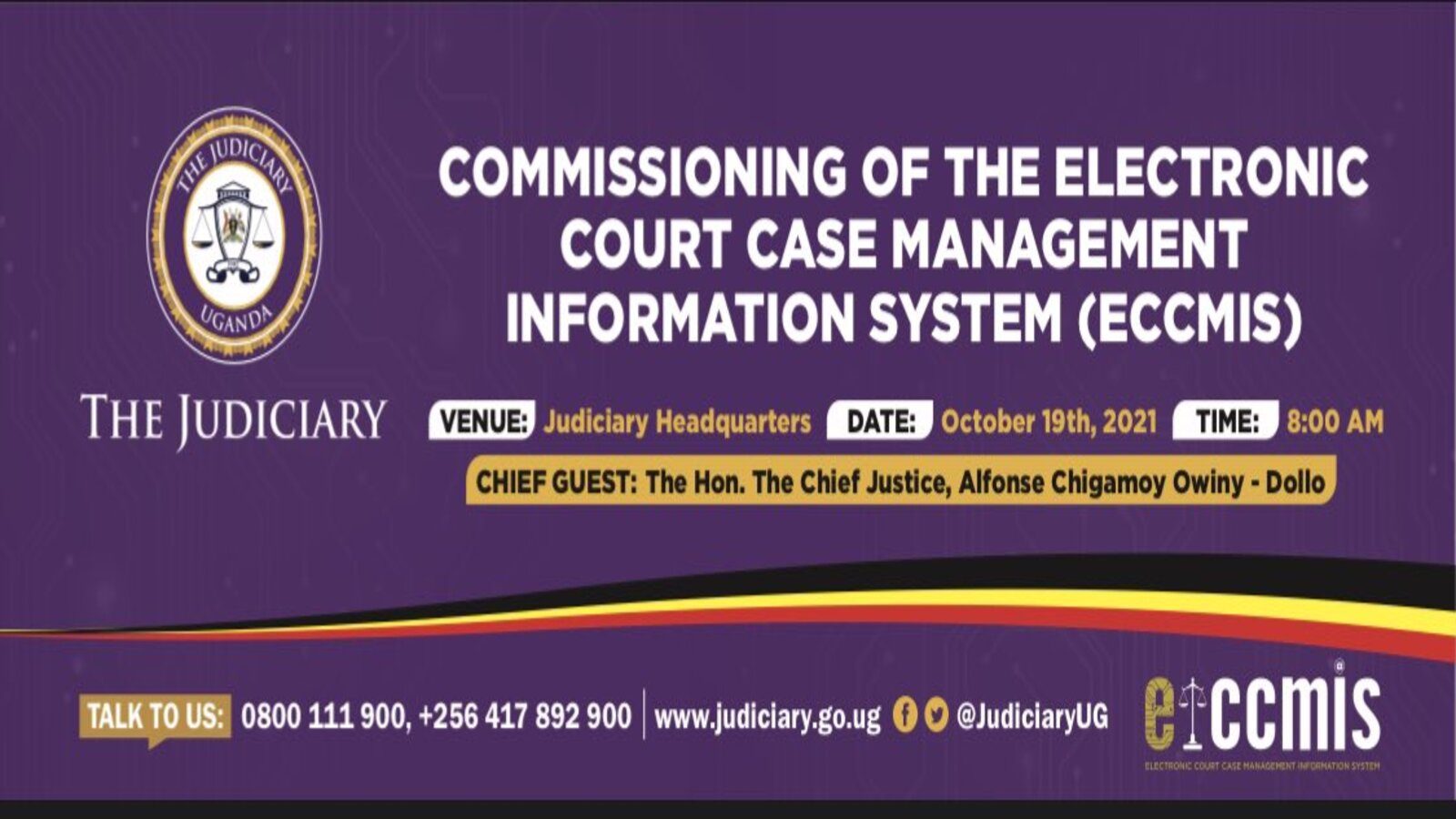Share
The Electronic Court Case Management Information System-ECCMIS proposal has received the unequivocal support of the Permanent Secretary to the Judiciary, Pius Bigirimana, who describes it as a formidable response to the ongoing problem of case backlog within Ugandan courts.
On August 24, 2023, Bigirimana praised the initiative’s tremendous success in addressing the increasing caseload that has long burdened the country’s court system. Bigirimana spoke with unflinching confidence.
The National Leadership Institute (NALI) in Kyankwanzi, where local government officials from central Uganda had gathered for a thought-provoking retreat, served as the big stage for this accolades.
Numerous representatives from government ministries, departments, and agencies (MDAs) received invitations to the 4-day retreat to discuss the NRM 2021/26 manifesto’s various successes.
In order to provide local government leaders with the knowledge they need to enlighten their respective electorates on the government’s success, these presentations were targeted at them.
In this context, PS Bigirimana, speaking on behalf of the judiciary, gave an intelligent presentation outlining how the five commitments of the court’s platform had been met.

In his presentation, he stressed the importance of addressing the case backlog problem, establishing ECCMIS, and incorporating video conferencing tools.
The ECCMIS effort, according to Bigirimana, “is positioned to improve flexibility and convenience in court processes, reduce paperwork, and speed up criminal case hearings. The regular hearings of criminal cases in Kampala’s judiciary make this clear. We are dedicated to continuing this procedure.
He also revealed the judiciary’s continuous initiatives to increase the number of support personnel who assist judicial officers in their tasks.
This initiative, which focuses on both judicial and non-judicial personnel categories, aims to decrease the backlog of cases.
Bigirimana said, “The non-judicial staff is essential in assisting judicial officers in carrying out their adjudicative responsibilities. These include office messengers, drivers, secretaries, court clerks, and process servers. The organization and structure of this non-judicial support staff have received cabinet approval.
He also emphasized the important role videoconferencing technology has had in clearing the backlog of cases. “Our goal was to cover all high court circuits,” he stated, “and I am pleased to report that we’ve achieved nearly 80% coverage, including the Supreme Court and the Court of Appeal.”
Why does ECCMIS exist?
The Electronic Court Case Management Information System, or ECCMIS for short, is a thorough system created to automate and monitor each stage of a case’s life cycle, from the initial file to the final disposition and appeal, for all kinds of cases involving individual parties.
The Judiciary’s business rules engine, which reduces the need for manual intervention, is the basis of ECCMIS.
A significant amount of case-specific data may be collected, organized, distributed, and retrieved with the system’s help in a more efficient manner. It also simplifies the processing of payments for fines and court costs.
Additionally, ECCMIS is able to provide reports from the system, providing helpful insights to support decision-making.
ECCMIS’s main attributes are:
E-filing: ECCMIS presents a public site that allows users to submit papers electronically and access case-related data for a variety of jurisdictions and case kinds. The ability to electronically file case documents will be advantageous to attorneys and will significantly lessen the administrative burden on the court system.
E-payment: The system enables the payment of penalties, filing fees, and bail and deposit-related transactions online. Various methods of payment are available, including mobile money, Visa, EFT, and others.
Accessibility via mobile phone: Through the use of SMS and mobile phones, litigants can easily check the status of their cases. Individuals involved can simply view and keep track of all instances with a USSD.
E-Processing (Online Case Management): Starting with the initial filing of a case and continuing throughout the whole case life cycle, ECCMIS encourages paperless case management. This covers procedures like mediation, automatically assigned cases, hearings, delivery of judgments, execution, case closure, and eventually systemic archiving.
ECCMIS provides a user-friendly reporting system that enables accurate reporting in a variety of formats, including lists, reports, cascades, charts, and bubbles. Drag-and-drop feature facilitates the reporting procedure.
His words continued to reverberate as the retreat came to a conclusion, serving as a reminder that Uganda’s legal system is advancing bravely towards a future marked by punctuality, impartiality, and restored faith in the administration of justice thanks to programs like ECCMIS.












